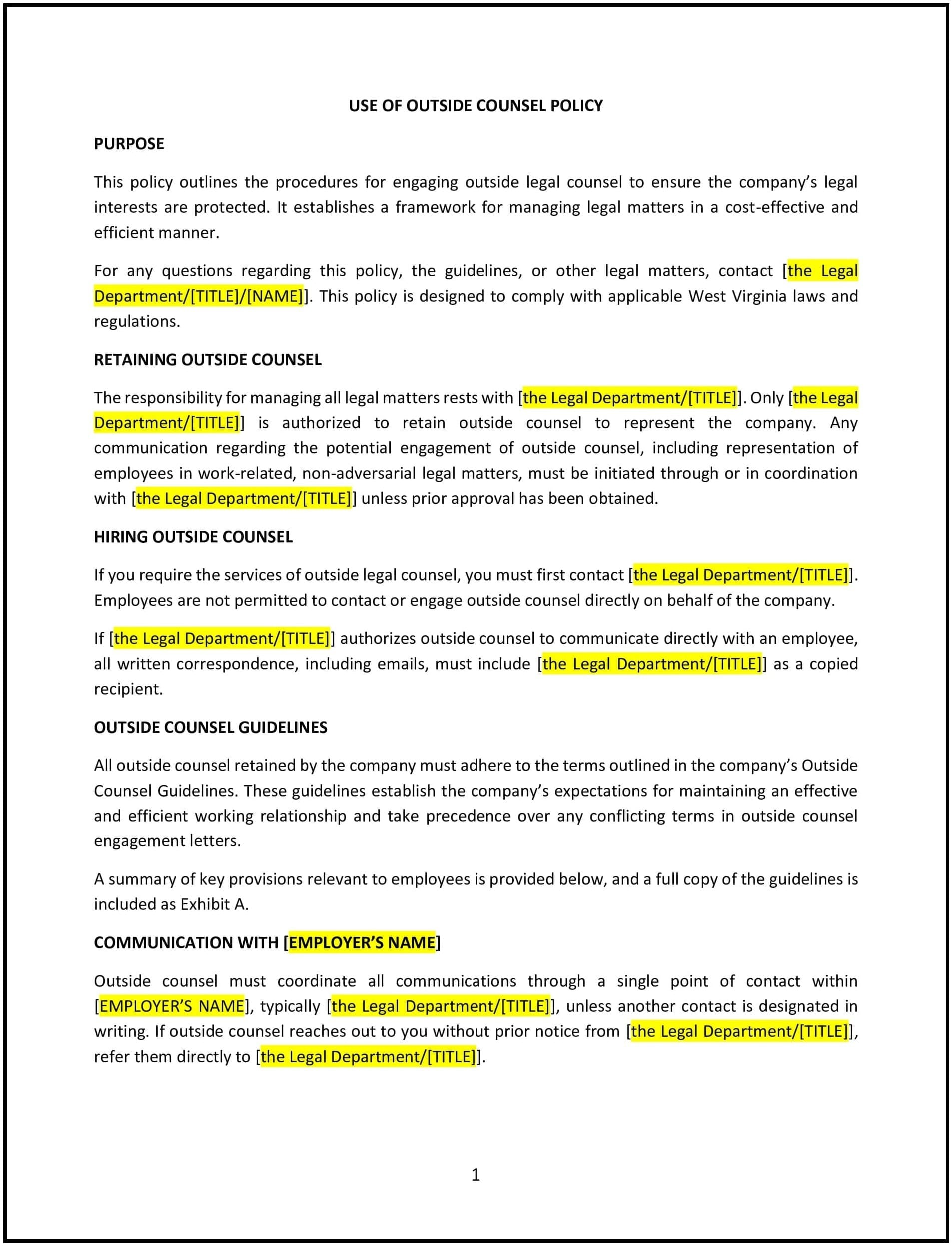Use of outside counsel policy (West Virginia): Free template
Got contracts to review? While you're here for policies, let Cobrief make contract review effortless—start your free review now.

Customize this template for free
Use of outside counsel policy (West Virginia)
In West Virginia, a use of outside counsel policy establishes guidelines for engaging external legal counsel to ensure that the organization receives specialized legal advice and support while maintaining cost efficiency and compliance with applicable laws. This policy provides clear instructions on when and how outside counsel should be consulted, as well as the approval and monitoring processes.
The policy outlines situations requiring external legal expertise, responsibilities for managing the relationship, and procedures for evaluating legal services.
How to use this use of outside counsel policy (West Virginia)
- Define appropriate use: Specify the circumstances under which outside counsel may be engaged, such as handling complex litigation, regulatory compliance, or specialized legal matters.
- Establish approval procedures: Outline the process for obtaining internal approval to engage outside counsel, including budget considerations and management sign-off.
- Provide engagement guidelines: Detail how outside counsel should be selected, including criteria such as expertise, cost, and past performance.
- Monitor ongoing engagements: Include procedures for evaluating the performance and effectiveness of outside counsel during and after the engagement.
- Support compliance: Ensure the policy aligns with West Virginia laws and ethical standards for legal services.
Benefits of using a use of outside counsel policy (West Virginia)
- Ensures expertise: Provides access to specialized legal knowledge and skills not available internally.
- Promotes cost efficiency: Establishes controls for managing legal expenses and preventing unnecessary spending.
- Supports compliance: Aligns with West Virginia laws and ethical guidelines governing the use of legal services.
- Enhances accountability: Clearly defines responsibilities for managing external legal counsel and monitoring their performance.
- Reduces risks: Minimizes the likelihood of legal missteps by engaging qualified and experienced external counsel.
Tips for using a use of outside counsel policy (West Virginia)
- Communicate the policy: Share the policy with employees responsible for legal or compliance matters to ensure understanding and adherence.
- Train managers: Provide guidance to supervisors on identifying situations requiring outside counsel and following engagement procedures.
- Document engagements: Maintain detailed records of approvals, contracts, and communications with outside counsel to ensure transparency and accountability.
- Review performance: Regularly assess the effectiveness and value of legal services provided by outside counsel to ensure continued alignment with organizational needs.
- Update periodically: Revise the policy to reflect changes in West Virginia laws, industry standards, or organizational priorities.